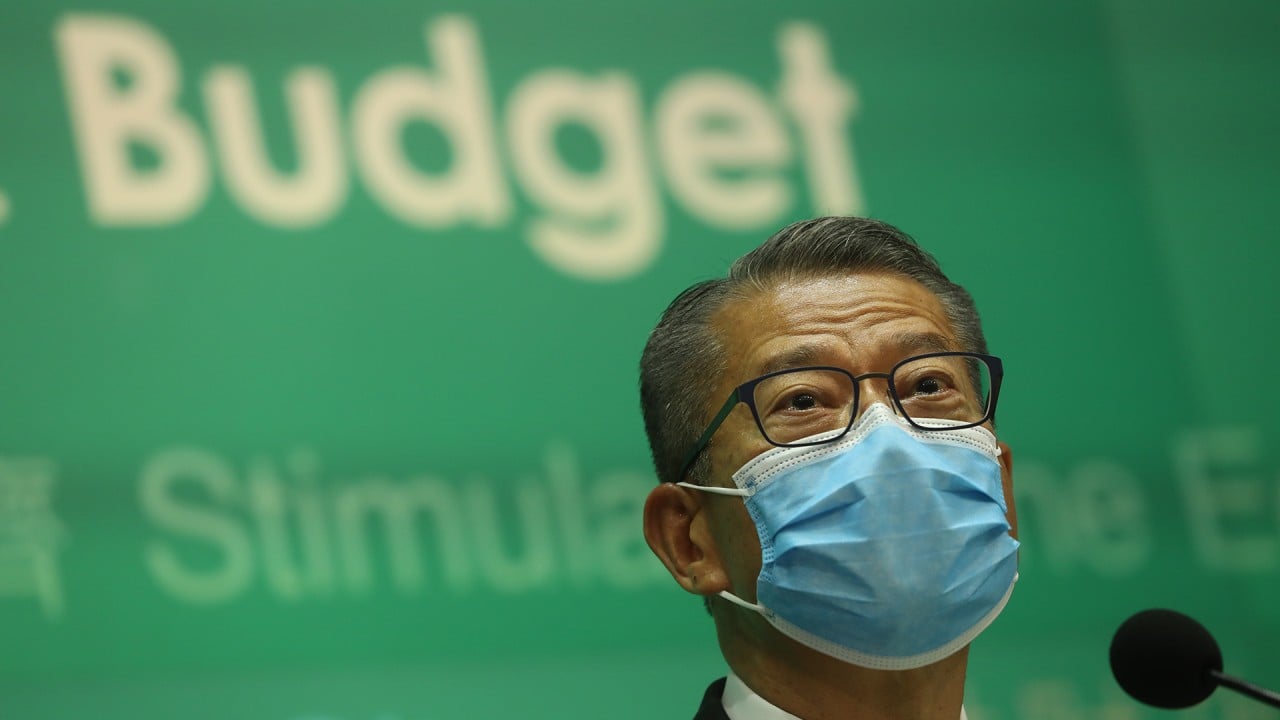
Proof of pudding in the eating for Paul Chan’s budget amid crisis
- Hong Kong’s financial secretary served up a spending blueprint featuring some relief measures, additional government income and hopes for growth, but whether it is enough for troubled city remains to be seen
Paul Chan Mo-po never promised any Michelin-star dishes when he dressed as a chef in a TV commercial asking for people’s culinary preferences as he prepared his budget. Apart from keeping the usual smorgasbord of tax rebates and concessions, albeit in smaller portions, the financial secretary still managed to dish out some appetising surprises amid severe constraints in his hot kitchen.
Even though the menu he unveiled on Wednesday is hardly a feast for those who have been hardest hit by Covid-19, it still provides much-needed sustenance.
Peppered with targeted measures such as spending vouchers and a personal loan scheme for the unemployed, the HK$100 billion (US$12.89 billion) deficit budget is a pragmatic and timely recipe to address the city’s current plight without losing sight of the need to rebuild. Thanks to Chan’s efforts in managing expectations, his two-hour speech may have even been welcomed by the many who did not expect much.
The unprecedented digital vouchers, coming in at HK$5,000 per head by instalments, appear to be less generous and flexible compared to last year’s HK$10,000 handouts.

03:43
What Hong Kong’s 2021-22 budget means for residents of the city
While the latest move is expected to bring direct benefit to the economy, it also raises concerns over access and use. The details must be carefully thought through to minimise any red tape and restrictions.
Separately, the loan scheme of up to HK$80,000 for those who are unemployed, similar to the one for small enterprises, is also a creative option. Whether those squeezed out of the job market will feel comfortable in incurring further debt is essentially their decision. But for the many who previously counted on government wage subsidies as a lifeline, the initiative may still fall short of their expectations.
Chan’s spending blueprint is noticeably heavy on China-related financial initiatives. They include making it easier for mainland investors to achieve diversified asset allocation in southbound trading under the Bond Connect scheme.
Such a direction is inevitable amid shifting economic and international relations. He has also taken the bold step of raising stamp duty on stock transactions, which is bound to draw criticism, but can help raise revenue.
With multibillion-dollar budget deficits expected to last for years, the forecast that an economy that shrank by 6.1 per cent last year is set to grow by 3.5 to 5.5 per cent in the next 12 months may sound too optimistic. The headcount freeze and recurrent spending cuts imposed on government departments underlines the importance of fiscal discipline in difficult times.
The way forward still hinges on our efforts in fighting the virus. As Chan says, the Covid-19 pandemic is a reminder that we are all in the same boat. Indeed, the public looks to him as more than just a chef with a tasty menu. He also needs to prove his blueprint can bail Hong Kong out of troubled waters.

